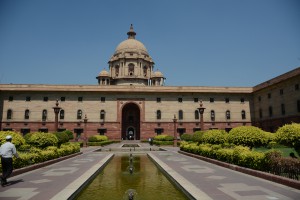The Ministry of Women & Child Development released the draft “Trafficking of Persons (Prevention, Protection and Rehabilitation) Bill, 2016” on 30th, May, 2016. A Bill aims to prevent trafficking of persons and to provide protection and rehabilitation to the victims of trafficking and to create a legal, economic, and social environment against trafficking of persons. The Draft also takes note of Article 23(1) of Constitution of India prohibits trafficking in human beings and begar and other similar forms of forced labour, making a contravention of the same a punishable offence; Article 21 of Constitution of India guarantees that no person shall be deprived of his life or personal liberty except according to the procedure established by law. It is to be enacted by the Parliament in the Sixty-seventh Year of the Republic of India; The United Nations Convention on Transnational Organised Crime and its three Optional Protocols, including the Protocol to Prevent, Suppress and Punish Trafficking in Persons, especially women and children ratified by Government of India;
The Bill extends to the whole of India except the State of Jammu and Kashmir. The draft is further divided into 41 Sections in XII Chapters.
Chapter II of the Draft deals with District Anti-Trafficking Committee. Section 3(1) deals with the Constitution of such Committee in every district or exercising the powers and performing such functions and duties in relation to prevention under chapter II. Section 5(1) further states that Government shall establish State Anti–Trafficking Committee to supervise the implementation of this Act and advise the State government and District Anti-Trafficking Committee on matters relating to prevention of trafficking; and Section 6 lays down that the Central Government shall constitute a Central Anti-Trafficking Advisory Board. Chapter IX of the Bill provides for Offences and Penalties under which Section 16 claims that whoever uses any drug, psychotropic substance or alcohol, for the purpose of trafficking shall be punishable with imprisonment for a term which shall not be less than seven years, but which may extend to ten years, and shall also be liable to fine which shall not be less than one lakh rupees and Section 17 further states that whoever administers any chemical substance to a trafficked woman, girl or a child for the purpose of early sexual maturity and exploitation shall be punishable with imprisonment for a term which shall not be less than seven years, but which may extend to ten years, and shall also be liable to fine which shall not be less than one lakh rupees.
The Bill under Chapter XI establishes special courts and their powers for speedy trials of offences involving and punishable under sections 370 to 373 of the Indian Penal Code, 1860 and the offences under this Act and lastly Section 35 and 36 gives powers to the central and the State Government to make rules.
This draft was posted on 01.06.2016 to the Ministry of Women and Child development seeking for Public Comments

